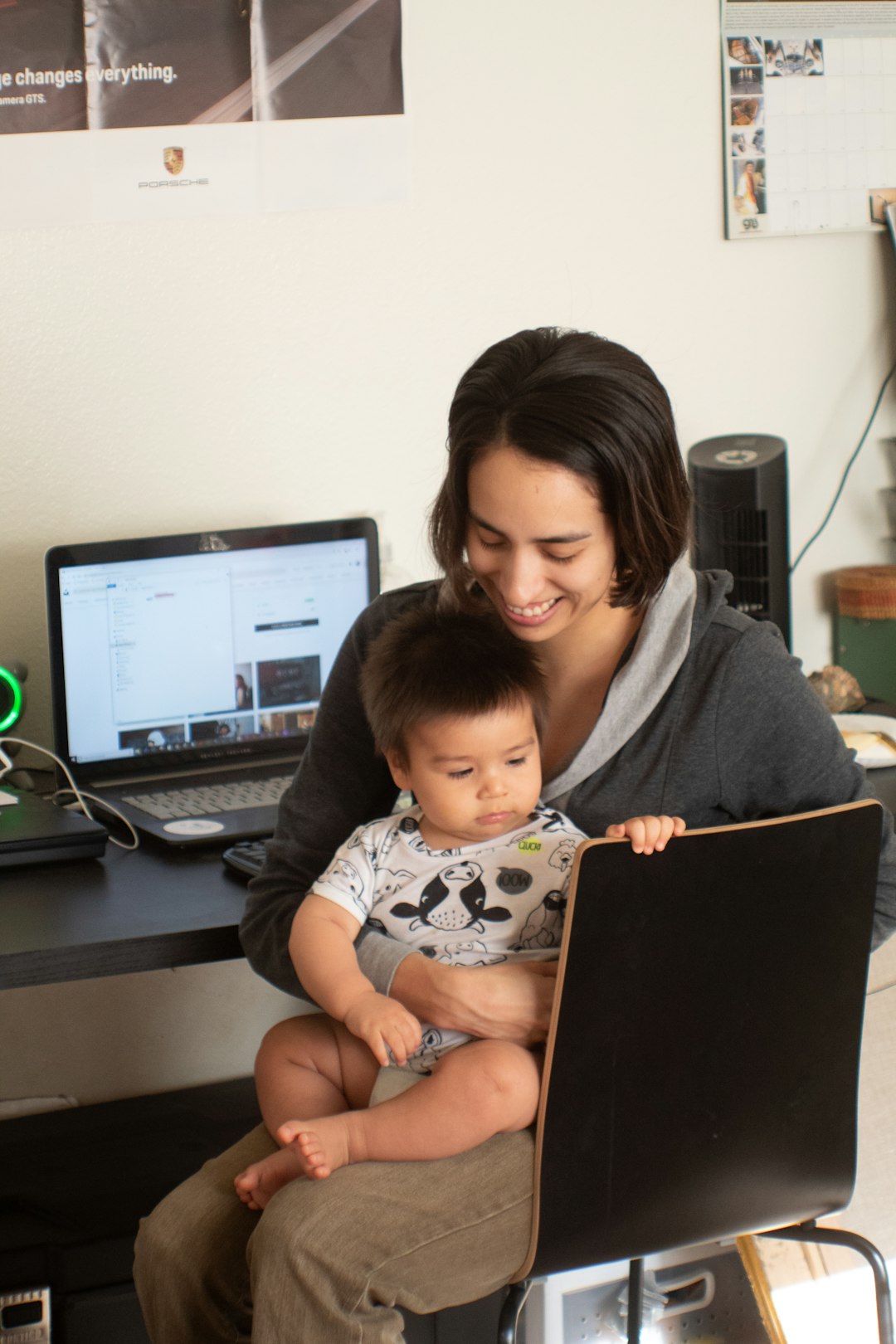Common Types of Mom Guilt
A continuation of our ongoing conversation about mom guilt.

Mom guilt can get triggered and expressed in a multitude of ways, that is really unique to each mother, their experience with having been mothered, their current environment, culture, and socioeconomic status. Throughout my conversations with mothers there are some common and universally identified sources of mom guilt. I think by understanding each of these general forms of mom guilt, it can not only help normalize and thus alleviate some of the pressures experienced, but also give women a better idea of a path forward out from under the heaviness of mom guilt. These identified sources of mom guilt are:
- comparison trap
- work-life balance
- self-care guilt
- decision-related guilt
- quality time limits
- limited patience and energy
1. Comparison trap:With social media, mommy influencers occupying the largest space on social media, and there being so many different representations of mothering it is hard to escape the creep of comparison. Whether it is the adventure packed mom, the amazing lunches mom, most styled mom, the I don’t have it together at all but still awesome mom, or whatever mom gets portrayed that evokes the feeling of comparison, it can become a trigger and source for guilt. By constantly comparing oneself to other seemingly "perfect" moms or the ones that fit the part as you’d like to be, can erode self-esteem and fuel feelings of inadequacy. The comparison trap is a powerful manifestation of mom guilt that can greatly impact a Mother’s self-esteem and overall well-being.
In today's age of social media, it is easy to fall into the trap of comparing oneself to the infinite ways to mother showcased online. Endlessly scrolling through carefully curated feeds can leave mothers feeling inadequate and questioning their own abilities. That questioning on one’s own abilities and feelings of inadequacy become the source of the Mom Guilt.
2. Work-life balance: Work-life balance is an ongoing challenge for many mothers, and it often becomes a significant source of Mom Guilt. I think of “work” as a woman working any job (including being a full-time mom), any number of hours, and any experience of “working.” For women working outside of their home, or in a job that takes them physically away from their children, feeling guilty about spending time away from children due to work commitments or pursuing a career is a common conflict and source of guilt. For mothers who do not work outside the home, prioritizing self-care and solo time can be equally important and necessary. Despite not having a formal job, being a stay-at-home mom is a demanding and often relentless role.
For all mothers, balancing the demands of a career or job while also nurturing a family often creates an internal struggle within women.
While this internal struggle may wax and wane through different stages of life, career and the age of their children, commonly mothers may feel torn between their professional aspirations and their desire to be present for their children. It is ironic that as I began to write this chapter, I am watching my children play outside and I am in this moment grappling with the torn feeling of using this time and energy to write and complete this chapter that I feel inspired to write or to go outside and play with my kids who have gotten home from school and we have not had a quality moment yet today. This type of mom guilt arises from the fear of missing out on important milestones or not being able to dedicate enough time and attention to our children's needs.
Societal expectations and cultural norms can further exacerbate the mom guilt surrounding work-life balance. Mothers may feel in a pressure bind of needing or wanting to prioritize their careers and establish themselves in the workplace while simultaneously feeling societal pressure to be the ideal, self-sacrificing, everything mother. In a study of 225 heterosexual couples, working moms felt more guilt associated with work interfering with family than working dads do. Moreover, the logistics of managing work and family responsibilities can add to the guilt. Juggling multiple schedules, arranging childcare, and meeting deadlines can be overwhelming. Mothers may question whether they are striking the right balance and worry that their commitments to work or family are compromising the other. This dichotomy can leave mothers feeling like they are falling short in both realms, leading to the guilt and self-doubt.


3. Self-care guilt: Neglecting self-care needs or feeling selfish when taking time for personal well-being can create its own type of guilt. Self-care guilt for mothers is the feeling of guilt or selfishness that arises when you prioritize your own well-being and engage in activities that are solely focused on self. Many moms may feel that taking time for self-care is indulgent or that they should always put the needs of their children and family above their own. Spoiler alert, are you might begin to see a pattern her, but this guilt just like all of the other forms of guilt also can stem from societal expectations, cultural norms, or personal beliefs about what it means to be a "good" mother.
Feeling responsible for meeting the endless demands and needs of their kids, can deeply influence mothers, and may influence them to hesitate allocating time or resources for their own self-care. This feeling of guilt for taking a break, pursuing personal interests, or simply prioritizing physical and mental health can lead to a whole host of impacts. So whether it be for a mom to go get her haircut, have drink out with a friend, take a walk, hire a babysitter so she can have some alone time at home, or engaging in anything that feels soul filling, it can become an internal struggle or battle for a mom to feel like she has to decide between taking care of herself and being mom.
What become apparent is that stemming from this type of guilt mothers will often neglect their own needs, resulting in exhaustion, burnout, and a diminished sense of self.
4. Decision-related guilt: Part of parenting is having to make a lot of decisions. Some are big picture decisions and others seem like moment to moment smaller decisions. For mothers experiencing decision-related guilt, there is a second-guessing of choices made in parenting, such as discipline methods, education choices, or feeding habits. Decision-related guilt is a common form of mom guilt that mothers often experience. Parenting is filled with countless decisions, both big and small, and it's natural for mothers to question their choices and feel guilty about the potential impact on their children.
Whether it's deciding on discipline methods, education choices, screen time limits, or even feeding habits, moms may second-guess themselves and feel guilty if they believe they have made the wrong decision.
This guilt can stem from the pressure to make the "perfect" choices for our children's well-being and future success. Have you ever made a choice for your child, and then suddenly thought “crap how is that going to impact them now” or doubt if you made the right decision. This worry about the long-term consequences of our decisions and fear that as a mom we may not be living up to societal expectations or meeting the standards set by other parents. Comparison with other moms, conflicting advice from various sources, and the fear of making mistakes can really intensify this type of decision-related guilt.
5. Quality Time Limits: It is not uncommon for moms to feel stretched thin, and a guilt can arise for not devoting enough time to each child, family members or others that are close to them. For mothers experiencing this guilt, there can be an internal battle or feeling like there is not enough time to spend quality time with their loved ones.
This feeling of being stretched thin, needing to give to so many, and being left with little to fully give to each, triggers a sense of guilt for many mothers.
Women struggling with this guilt will often not just mention guilt in not spending enough time with their children or partner, but also often include their own extended family, parents, and close friends. Citing that family and community is important to them and yet not knowing how to have enough time for each of these people and/or experiences.
You might also like...
View all-

What If We Treated Mothers Like the Sacred Forc...
What if we stopped seeing mothers as exhausted, self-sacrificing caretakers, and instead honored them as powerful forces of creation, transformation, and love? What if motherhood wasn’t the thing that quietly...
What If We Treated Mothers Like the Sacred Forc...
What if we stopped seeing mothers as exhausted, self-sacrificing caretakers, and instead honored them as powerful forces of creation, transformation, and love? What if motherhood wasn’t the thing that quietly...
-

On Being Brave
I did something brave this month. Brave for me. Brave in a way that wasn’t about physical risk or doing a grand adventure, but instead about stepping over quiet, persistent internal hurdles. Ones...
On Being Brave
I did something brave this month. Brave for me. Brave in a way that wasn’t about physical risk or doing a grand adventure, but instead about stepping over quiet, persistent internal hurdles. Ones...
-

How Can We Redefine "Success" in Mothering
I ask you to bear with me through this share. I am just coming to make sense of something in my own mind, that I wanted to share with you,...
How Can We Redefine "Success" in Mothering
I ask you to bear with me through this share. I am just coming to make sense of something in my own mind, that I wanted to share with you,...



